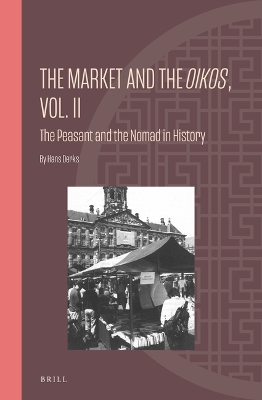Ideas, History, and Modern China
2 primary works
Book 18
Probably the most fundamental relationship in human history is that of the Market versus the Oikos (= the authoritarian ruled house, family, household or the State). Its main features and elements are analysed and newly defined as are its relations with town-country antagonisms or capitalism, nation, race, religion, and so on. Because it concerns a rather universal relationship, the definitions of the relevant elements are developed over time (from ancient Greeks to Nazi contexts) and place (in the West and the East, particularly China).
Max Weber is chosen as our "sparring partner," starting with his popular analysis of the relationship of capitalism and religion in the West and of Chinese society in the East
Max Weber is chosen as our "sparring partner," starting with his popular analysis of the relationship of capitalism and religion in the West and of Chinese society in the East
Book 27
Both Karl Marx and Max Weber inspired the writing of the two volumes of The Market and the Oikos. Weber coined a market versus oikos contradiction, in which oikos not only means house, household or family, but later also the state, while Marx saw a town versus country antagonism. Both scholars, however, explained insufficiently these most complicated concepts, let alone some mutual relationships. This second volume, The Market and the Oikos, Vol. II: The Peasant and the Nomad in History, continues the analysis of their antagonisms in their mutual relationships by providing the main practical characteristics in different historical, economic and sociological contexts, based on the writing of Max Weber as explained in Vol. I.
While the first volume tried to characterize the relationships from economic and historical points of view, this second volume takes a historical/sociological angle. In both volumes, Hans Derks' argument proceeds from early world historical examples to the present context of contemporary China, stressing the highly neglected role of nomads in history.
While the first volume tried to characterize the relationships from economic and historical points of view, this second volume takes a historical/sociological angle. In both volumes, Hans Derks' argument proceeds from early world historical examples to the present context of contemporary China, stressing the highly neglected role of nomads in history.

